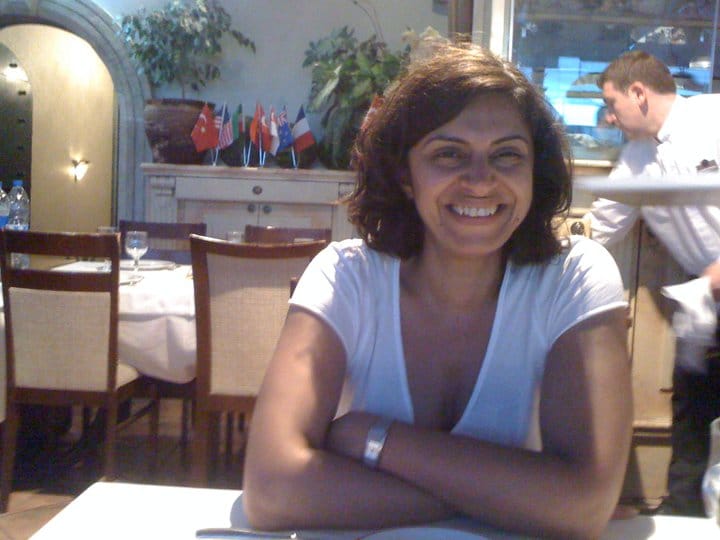Interview with an Academic: Exam Special with Shabnum Tejani

By Alistair Rooms, BA History & Politics
To show the wealth of SOAS academics, Ally Rooms has decided to interview various teachers with a set of simple questions. Hopefully we will learn more about SOAS academics and gain some pearls of wisdom.
Shabnum Tejani is Senior Lecturer in the History of Modern South Asia at SOAS. She was born in Kampala, Uganda. Her specialism is secularism and nationalism in late colonial India. Her new work is on Bombay city in the twentieth century. She studied at Oberlin College in Ohio and received her MA and PHD from Columbia University in New York.
1. What is your first memory?
Walking down the stairs in my grandfather’s home in Belgaum, Karnataka, when I was two.
2. Which living person do you most abhor? And Why?
Tony Blair. Because he has started these terrible wars which have killed and displaced hundreds and thousands of people and to which there is no foreseeable end.
3. Which living human do you most admire? And Why?
My mother. Because she is gentle and wise.
4. What angers you?
When I’m unjustly accused.
5. When were you happiest?
Sitting with an old friend on my balcony in Bombay watching the monsoons.
6. What stops you sleeping at night?
Caffeine
7. What is top of your bucket list?
I would like to go to Peru. And to northern Pakistan.
8. What is the worst job you’ve had?
Filing blood reports in Whipps Cross Hospital – that’s mind-numbing work even when you are fifteen
9. Which book changed your life?
This Matter of Culture by J. Krishnamurti.
10. What is your favourite word?
Actually.
11. If you could time travel, where would you go?
The 1920s
12. How do you relax?
I go for long walks.
13. What is your memory of 9/11?
Walking outside where there was this eerie silence. There were no cars in the streets which is unheard of in New York. We all needed to be outside with other people. There were hundreds of people in the streets. And we all walked towards the Hudson River to a viewing point where we could watch the smoke from the World Trade Centre billowing up.
14. If you could change one thing about SOAS what would it be?
Middle management. Online coursework submission.
15. What film/book would you recommend to the SOAS community?
Restrepo – a documentary film on the war in Afghanistan made by Sebastian Junger who was an embedded journalist. A Separation by Iranian film maker Asghar Farhadi which is a very moving and subtle portrait of the end of a marriage.
16. Who is the most inspiring person you have met?
I have a very old aunt who has suffered unimaginable difficulties in her life. Yet she is not embittered but positive and generous.
17. Can you share an amusing SOAS related anecdote with us.
It’s always funny to hear how students see you. Last year when I took my class for a drink after their exam some students said they had heard I was a Muslim convert. Only at SOAS would we have a conversation like that – it left me amused for days.
18. Describe your worst exam related experience.
Sitting in my oral exams (see below) being asked a question about a book I should have read and hadn’t. That was horrible.
19. What is the hardest exam you have had to do?
My ‘orals’ as they call them in the US. It’s the oral exam you have to pass before you are allowed to go on fieldwork for doctoral research. I don’t think I really understood what was expected – which was essentially to think on my feet – so that knocked my confidence.
20. What did you do to cope with exam stress?
I used to drink jasmine tea to stay awake and made sure I was preparing. If I have any advice for coping with exam stress it is this: as far as possible try and figure out what is expected and then break down what looks like an overwhelming task into smaller and manageable pieces. Prepare systematically and strategically. And remember – you know more than you think you do. But you need to try and figure out how to communicate it.
21. Describe the worst thing a student has written in an exam you marked.
I’ve forgotten many of the cringe worthy things that I’ve read. There was something very funny a couple of years ago where a student wrote that the bullock cart was one of the ‘new technologies’ the British introduced into India.
22. What generally impresses you in exams?
When it’s clear that the student is thinking for her/himself, drawing on different parts of the course to make an argument that is her/his own.




